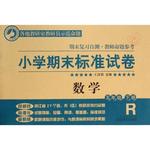
分析 富兰克是一位和父亲生活在一起的青少年.他有如此多的家庭规则以至于他不能忍受,所以他离家出走.因为他找不到工作,只好靠乞讨为生.
几年后,他的父亲老了,但他仍在寻找他的儿子.他去过城市的每一个角落.无论他走到哪里,他都在墙上贴了一张自己和富兰克的大照片,在照片的下方,他写道:"我仍然爱你,我亲爱的儿子,请你回家!"
有一天,富兰克看到了一张照片,照片上的脸对他来说很熟悉,"那是我父亲吗?"他想了一会儿,决定回去看看他的父亲.当他回家的时候,那是一个清晨.门没有上锁,他冲到他父亲的卧室."是我!你的儿子回来了!"父亲和儿子相互抱在一起,眼里充满了幸福的泪水.儿子问道,"为什么不锁门?小偷会进来的."父亲用柔和的声音回答到,"因为我期待你的归来.事实上,门自从你离开就没有锁."
解答 71.答案:that 句子中so many表示如此多,后面是一个从句,可知这里结果状语从句.结合首字母提示t可以推出单词that,so…that…如此…以至于.故填:that.
72.答案:living 考查动词及语境的理解,上文提到他找不到工作,下文提到begging乞讨,结合首字母l可以推测出单词living,make a living by…通过做…来谋生,故填:living.
73.答案:looking 上文提到他的父亲老了,这里but表示转折,他仍然在寻找他的儿子,结合首字母提示l可知单词为look,look for寻找,联系was可知此处应用过去进行时,表示过去正在做某事was/were doing.故填:looking.
74.答案:Everywhere 父亲找遍了城市的每一个角落,每到一个地方,父亲应该张贴寻人启事,结合首字母提示e可知单词为everywhere每个地方,无论哪里,故填:Everywhere.
75.答案:wrote 结合首字母w提示以及句意在照片的下方,应是写道:"我仍然爱你,我亲爱的儿子,请你回家!"可知单词为write,为一般过去时,动词用过去式,故填:wrote.
76.答案:back 根据上文可知:儿子离家出走多年没有回家,直到有一天看到那张父子俩的照片,所以他决定回去看看他的父亲,结合首字母b提示可知单词为back,get back回来,故填:back.
77.答案:when 结合首字母w并联系语境,可知考查时间状语从句,当…的时候,用连词when,句意当他回家的时候,那是一个清晨.故填:when.
78.答案:eyes 考查名词及语境的理解,tears in one's eyes眼中的泪水,结合首字母e提示可知单词为eyes眼睛,为复数,故填:eyes.
79.答案:Why 结合首字母w联系句式为疑问句,并联系后句可A thief could get in(小偷会进来的)可知这里询问为什么,用疑问副词why,句意为什么不锁门?故填:Why.
80.答案:voice 根据引号里的内容,"因为我期待你的归来.事实上,门自从你离开就没有锁."可知父亲期待儿子回家,结合首字母提示v可知单词为 voice嗓音,说话的声音,in a soft voice用柔和的声音(说话),故填:voice.
点评 首先要通读全文了解文章大意,再根据句子意思及具体语境确定答案,这种题型比较灵活的考查了学生多方面的知识和技能.要做好这类题,就要注意平时知识的积累,包括单词、词组、句型等.


 小学期末标准试卷系列答案
小学期末标准试卷系列答案科目:初中英语 来源: 题型:填空题
查看答案和解析>>
科目:初中英语 来源: 题型:选择题
| A. | neither | B. | either | C. | both | D. | none |
查看答案和解析>>
科目:初中英语 来源:2017届湖北黄冈团风县王亚南中学九年级上第一次月考英语卷(解析版) 题型:补全对话
根据上下文选择适合的选项,有两项是多余的。
A: I’ve been learning English for a long time, but I still can’t speak English well. 1.___ _
B: Take your time, Li Ming. Anyway, Rome wasn’t built in a day. In fact, you only need to practice before you can speak it well.
A:2.__________
B: That’s natural. 3. Let me take something for example. You know, when people first learn to drive a car, they can’t do it well.
A: I know what you mean.
B:4. All you have to do is to practice and don’t be afraid of making mistakes. The more mistakes you make, the faster you can learn English well.
A:5.___________
B: Just take your time. I am always glad to help.
A. How can I help you? B. I really get frustrated. C. It’s easy to say but hard to do. D. But I often make mistakes in practice. E. Learning English is like driving a car. F. That happens to every language learner. G. Do you ever speak to any native English speakers? |
查看答案和解析>>
科目:初中英语 来源: 题型:选择题
| A. |  | B. |  | C. |  | D. |  |
查看答案和解析>>
科目:初中英语 来源: 题型:选择题
| A. | must | B. | can | C. | mustn't | D. | can't |
查看答案和解析>>
科目:初中英语 来源: 题型:阅读理解
查看答案和解析>>
科目:初中英语 来源: 题型:选择题
| A. | idea | B. | advice | C. | information |
查看答案和解析>>
科目:初中英语 来源:2017届湖北黄冈团风县王亚南中学九年级上第一次月考英语卷(解析版) 题型:单项填空
—Look! The children are throwing water____ each other in the river.
—Yes. It’s a little similar_____ the Thai Water Festival.
A. into; for B. /; at C. at; to D. to; with
查看答案和解析>>
湖北省互联网违法和不良信息举报平台 | 网上有害信息举报专区 | 电信诈骗举报专区 | 涉历史虚无主义有害信息举报专区 | 涉企侵权举报专区
违法和不良信息举报电话:027-86699610 举报邮箱:58377363@163.com